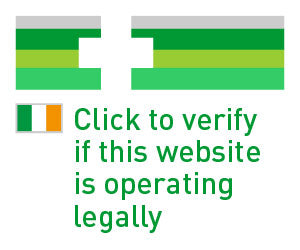Skin Conditions - Living with Eczema

What is Eczema?
Eczema is a very common skin condition which inflames the skin and can affect both children and adults. Atopic eczema, atopic dermatitis, and allergic eczema are all other names for it. It will usually show up in children before the age of 5, but most will outgrow it. Teens and adults can later develop the condition and will need to seek treatment.
Eczema happens when your skin has a difficult time retaining moisture. This causes your skin to become dry, itchy and easily inflamed, which can become painful. It can affect different areas of the body, including the face, hands and even eyelids. The itching can become unbearable and scratching just makes your skin itch more, and the cycle continues.
What are the Signs of Eczema?
Irritated, dry, rough, flaky, inflamed, and itchy skin are the primary signs.
Although eczema can appear anywhere, it tends to impact the scalp, cheeks, inner elbows, backs of the knees, and arms. It is not transmissible and often gets milder as you mature.
 Pic: Eczema on scalp
Pic: Eczema on scalp
Additional signs include:
- Extremely itchy red patches or scaly rashes.
- Small, raised lumps that ooze when scratched. This may indicate signs of skin infection.
- Dry skin which feels painful or raw and has cracked and possibly bled.
Potential Triggers of Eczema Include:
When one or more symptoms manifest on the skin, a flare-up occurs. HSE studies have revealed that eczema flare-ups can be caused by both internal and external factors. Typical causes include:
- Irritation from cleansers and detergents that contain additives or preservatives
- Scented goods
- External allergens from cigarette smoke, such as pollen, mould, dust, or dust mites
- Materials with a rough texture, such as wool and synthetic textiles
- Sweating
- Temperature shifts
- Stress
- Animal dandruff
- Food allergies
- Upper respiratory diseases
- Allergic reaction
 Pic: Eczema on face & neck
Pic: Eczema on face & neck
Relieving Symptoms of Eczema at Home:
- Apply a moisturiser or emollient to your skin at least twice daily to protect it. Regardless of whether your eczema is under control and there aren't any flare-ups. It is more beneficial to use thick moisturisers or ointments.
- Wet dressings can aid in cooling, protecting, and rehydrating your skin.
- Use antihistamines, apply a cold compress on the area, and refrain from scratching to reduce irritation.
- Use the eczema creams or ointments your doctor has given to treat flare-ups. In certain cases, they will prescribe steroid creams. Your doctor, dermatologist, or allergist can assist you in choosing the best treatment. The type and degree of your condition will determine the best course of treatment for you.
 Pic: Eczema on arms
Pic: Eczema on arms
Is there a cure for Eczema?
There is no known cure for eczema, but treatment from your doctor or specialist can help control the symptoms. The rashes won't go away on their own and can end up worsening if left untreated. The sooner you seek help with treating eczema, the better.
The main treatments for eczema are:
- Soap substitutes and emollients (moisturisers)
- Topical steroids (prescription treatment that you put on your skin)
- Topical tacrolimus (prescription ointment that you put on your skin)
Other treatments include:
- Antihistamines
- Bandages or special body suits
- Stronger treatments you can get from a dermatologist (skin specialist)
Sources: HSE.ie and Irish Skin Foundation



